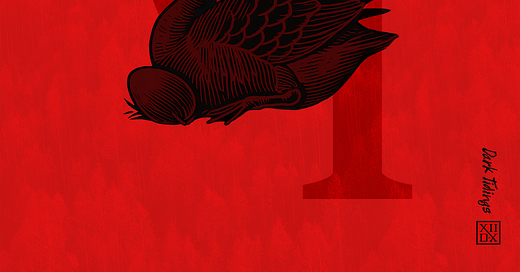Upgrade to paid to play voiceover
Twelve Days of Christmas—Dark Tidings is a Substack special holiday event. Each day beginning Friday the 13th, we’ll count down to Christmas Eve with a dark tale featuring one of the gifts from the classic carol. A guide to all the stories can be found here.
19th December 1920
Mr Timothy Wicklow arrived at Harewood Court …
Keep reading with a 7-day free trial
Subscribe to A Work Of Fiction to keep reading this post and get 7 days of free access to the full post archives.





